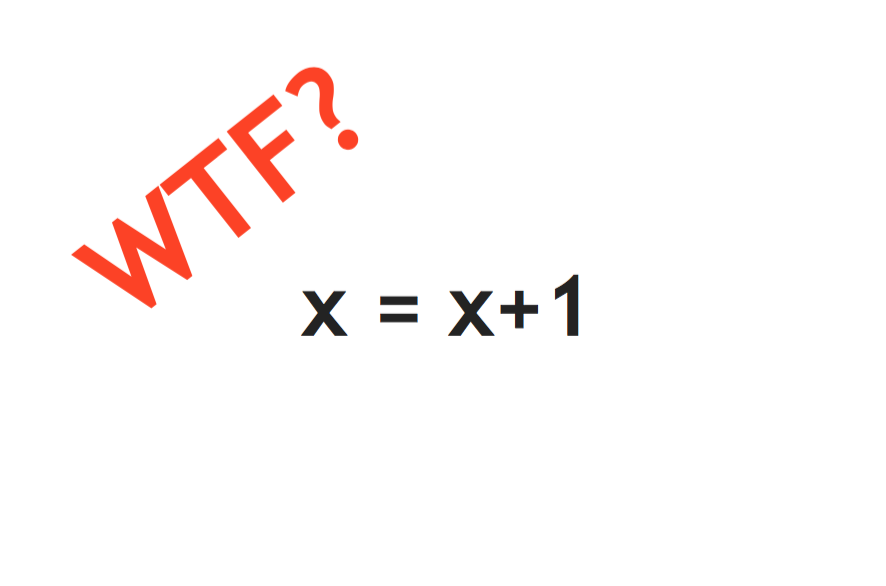A Programming Language
Two Variables
x,y
Three Operations
x++x--x = 0 ? L1 : L2
Example Program
(What does it do?)
L1: x++
y--
y = 0 ? L2 : L1
L2: ...
The above language is “equivalent to” every PL!
- But good luck writing QuickSort …
- … or Plants v. Zombies
- … or Spotify!
So Why Study Programming Languages?

Federico Fellini
A different language is a different vision of life.
So Why Study Programming Languages?

Spoiler Alert
So Why Study Programming Languages?
The principle of linguistic relativity holds that the structure of a language affects its speakers world view or cognition.
Or more simply:
Programming Language shapes Programming Thought.
Language affects how:
- Ideas are expressed
- Computation is expressed
Course Goals

Morpheus, The Matrix
Free Your Mind.
Goal: Learn New Languages / Constructs

Musical Score
New ways to describe and organize computation,
To create programs that are:
- Readable
- Correct
- Extendable
- Modifiable
- Reusable
New languages come (and go …)
There was no
- Java 20 years ago,
- C# 15 years ago,
- Rust 10 years ago,
- Go 5 years ago…
Goal: Learn to Learn

Anatomy
In 130 you will learn the anatomy of a PL
- Fundamental building blocks
- Different guises in different PLs
Understand the PLs you already “know”.
Goal: How to Design new Languages
Buried in every extensible system is a PL
- Emacs, Android: LISP
- Word, Powerpoint: Macros, VBScript
- Firefox, Chrome, Safari: JavaScript
- SQL, Renderman, Latex, XML …
If you work on a large system, you will design a new PL!
Goal: Enable You To Choose Right PL
But isn’t that decided by
- Libraries
- Standards
- Hiring
- Your Boss?!
Yes.
My goal: Educate tomorrow’s leaders so you’ll make informed choices.
Speaking of Right and Wrong

x = x + 1
Imperative Programming is Wrong (default)

Gears of War
Tim Sweeney (Epic, Creator of the UNREAL Gaming Engine)
In a concurrent world, imperative is the wrong default.
Imperative Programming is Wrong (default)
John Carmack, creator of FPS (Doom, Quake, …)

Carmack discourages variable mutation
Functional Programming
- No assignment
- No mutation
- No loops
OMG! Who uses FP?!
- Google (MapReduce, …)
- Microsoft (LinQ, F#, …)
- Facebook (Erlang, Reason,…)
- Twitter (Scala, …)
- Wall St. (Haskell, Ocaml, …)
and, most importantly ….
- CSE 130
Course Mechanics: Web Page
All information lives online:
Course Mechanics: Clickers
Make class interactive
- Help you and me understand whats tricky
Clickers Are Not Optional
- Cheap ones are fine
- Respond to 75% questions
- Worth 5% of your grade
Laptops are welcome in lecture (but optional)
Course Mechanics: In Class Exercises
- Solo Vote
- Think for yourself, select answer
- Discuss
- Analyze Problem in Groups
- Reach consensus
- Have questions, raise your hand!
- Group Vote
- Everyone in group votes
- Must have same vote to get points
- Class Discuss
- What was easy or tricky?
Course Mechanics: Grading
(30%) Assignments
- 6-7 assignments
- All programming
(30%) Midterm
- In-class (TBA)
- 2-sided printed “cheat sheet”
(35%) Final
- 2-sided printed cheat sheet
(05%) Clickers
- Attempting to answer > 75% questions
(05%) Piazza Extra Credit
- To top 20 best participants
Course Mechanics: Grading
CSE 130 is graded on a curve
- Lots of work
- Don’t worry (too much) about grade
Course Mechanics: No Text
Online lecture notes and links
Pay attention to lecture
Do Assignments Yourself
Programming Assignments
About 6-7 over the quarter
Accessed via
githubSchedule up on webpage (due Fridays 5 PM)
Programming Assignments

Don’t complain
Programming Assignments
Unfamiliar Languages and Environments Forget
- Java, C, C++ …
- … and other 20th century languages
Don’t Complain
- That X-language is hard
- That X-language is @!%$#$
Do
- Start early
- Ask lots of questions!
Programming Assignments
No Deadline Extension
- Four late days, used as whole unit
- 5 mins late = 1 late day
- Plan ahead no other extensions
A Word from Our Sponsor
Programming Assignments done alone
- Zero Tolerance
- Offenders punished ruthlessly
- Please see academic integrity statement
We use plagiarism detection software
- I am an expert
- Have code from all previous classes
- MOSS is fantastic, plagiarize at your own risk
Plan
FP
- Haskell
- 5 weeks
OO
- Scala
- 3 weeks
Logic
- Prolog
- 2 weeks
QuickSort in C
void sort(int arr[], int beg, int end){
if (end > beg + 1){
int piv = arr[beg];
int l = beg + 1;
int r = end;
while (l != r-1)
if(arr[l] <= piv) l++;
else swap(&arr[l], &arr[r--]);
if(arr[l]<=piv && arr[r]<=piv)
l=r+1;
else if(arr[l]<=piv && arr[r]>piv)
{l++; r--;}
else if (arr[l]>piv && arr[r]<=piv)
swap(&arr[l++], &arr[r--]);
else r=l-1;
swap(&arr[r--], &arr[beg]);
sort(arr, beg, r);
sort(arr, l, end);
}
}
QuickSort in Haskell
sort [] = []
sort (x:xs) = sort ls ++ [x] ++ sort rs
where
ls = [ l | l <- xs, l <= x ]
rs = [ r | r <- xs, x < r ](not a wholly fair comparison…)
Readability Matters …
QuickSort in J
sort =: (($:@(<#[),(=#[),$:@(>#[))({~ ?@#))^: (1:<#)
Plan for next 5 weeks
Tiny core language (Lambda Calculus)
Fast forward intro to Haskell
Rewind and go over anatomy individually
